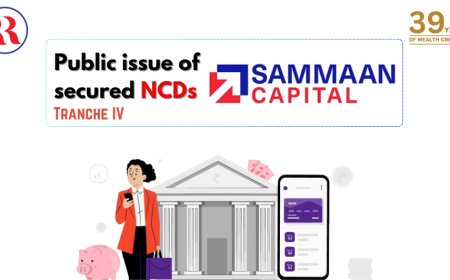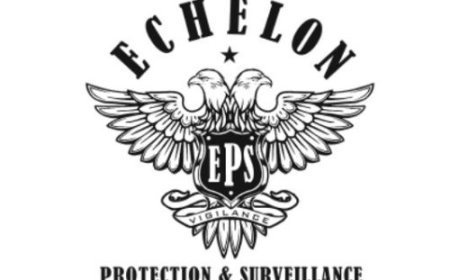How to Apply for Character Certificate
How to Apply for Character Certificate A Character Certificate, also known as a Good Conduct Certificate, Police Clearance Certificate, or Integrity Certificate, is an official document issued by authorized government or law enforcement agencies to verify an individual’s clean criminal record and moral standing. This document is often required for employment, immigration, higher education abroad,
How to Apply for Character Certificate
A Character Certificate, also known as a Good Conduct Certificate, Police Clearance Certificate, or Integrity Certificate, is an official document issued by authorized government or law enforcement agencies to verify an individual’s clean criminal record and moral standing. This document is often required for employment, immigration, higher education abroad, visa applications, government service, adoption processes, and professional licensing. While the terminology and issuing authorities may vary by country or region, the core purpose remains consistent: to provide third parties with verified assurance that the applicant has no history of criminal activity or ethical violations.
Obtaining a Character Certificate is not merely a bureaucratic formality—it is a critical step in establishing trust and credibility. For individuals seeking opportunities overseas, this document can be the deciding factor in visa approval. For professionals entering regulated industries such as education, healthcare, or finance, it confirms suitability for positions of responsibility. In many jurisdictions, failure to submit a valid Character Certificate can result in application rejection, delayed processing, or even legal consequences.
Despite its importance, the process of applying for a Character Certificate is often misunderstood. Many applicants assume it is a simple form-filling exercise, when in reality, it involves multiple stages of documentation, verification, and sometimes in-person appearances. Confusion over eligibility, required documents, processing times, and issuing authorities leads to repeated applications, unnecessary fees, and avoidable delays.
This guide provides a comprehensive, step-by-step roadmap to successfully apply for a Character Certificate, regardless of your location or purpose. Whether you are a student preparing for international studies, a professional relocating abroad, or a citizen applying for public service, this tutorial will equip you with the knowledge, tools, and best practices to navigate the process efficiently and accurately.
Step-by-Step Guide
Applying for a Character Certificate involves a sequence of well-defined stages. While procedures may vary slightly depending on your country or local jurisdiction, the following universal framework ensures you cover all essential requirements without omission.
Step 1: Determine the Issuing Authority
The first and most critical step is identifying the correct authority responsible for issuing the Character Certificate in your region. In many countries, this is handled by the national police department, ministry of interior, or a designated civic office. In others, local municipal corporations, district magistrates, or even embassies may be involved.
For example:
- In India, applications are typically processed through the local police station or state government’s e-Services portal.
- In the United States, fingerprint-based background checks are conducted by the FBI or state-level bureaus like the California Department of Justice.
- In the United Kingdom, disclosures are issued through the Disclosure and Barring Service (DBS).
- In Australia, applicants apply via the Australian Criminal Intelligence Commission (ACIC).
Always verify the official government website for your jurisdiction. Avoid third-party websites that may charge excessive fees or provide outdated information. Look for domain extensions such as .gov, .gouv, .gov.uk, or .gov.in to confirm legitimacy.
Step 2: Confirm Eligibility and Purpose
Not all individuals are eligible to apply for a Character Certificate, and the purpose of the application often determines the type of certificate required. Common eligibility criteria include:
- Being a citizen or legal resident of the country issuing the certificate.
- Having resided in the jurisdiction for a minimum period (e.g., 6 months to 5 years).
- Not being under active investigation or legal proceedings.
The purpose of the certificate must be clearly stated during application. Common purposes include:
- Employment (domestic or foreign)
- Higher education abroad
- Immigration or permanent residency
- Adoption or foster care
- Volunteer work with vulnerable populations
- Licensing for professions such as teaching, nursing, or law enforcement
Some authorities require you to specify the recipient organization (e.g., university name, embassy, employer). Ensure this information is accurate, as incorrect details may result in rejection.
Step 3: Gather Required Documents
Documentation is the backbone of any Character Certificate application. Incomplete or incorrect documents are the leading cause of application delays. Below is a comprehensive checklist of commonly required items:
- Government-issued photo ID – Passport, national identity card, or driver’s license.
- Proof of residence – Utility bills, rental agreements, or bank statements issued within the last 3 months.
- Passport-sized photographs – Usually 2–4, adhering to specific background and size requirements (often white background, no glasses).
- Application form – Downloaded from the official portal or obtained in person. Must be completed in block letters and signed.
- Fingerprint records – In many countries, digital or inked fingerprints are mandatory. These are often captured at designated centers.
- Proof of purpose – Letter from employer, university admission letter, visa application reference number, or adoption agency confirmation.
- Previous certificates (if applicable) – If you’ve held a previous Character Certificate, you may be asked to submit it for comparison.
Always make photocopies of all documents and retain digital scans. Some jurisdictions require original documents for verification, while others accept certified copies. If documents are not in the official language of the issuing country, certified translations may be necessary.
Step 4: Complete the Application Form
Application forms vary in complexity. Some are simple one-page forms; others require detailed personal history spanning decades. Key sections typically include:
- Full legal name (as per birth certificate or passport)
- Date and place of birth
- Current and previous addresses (usually for the past 5–10 years)
- Occupation and employer details
- Names of parents or guardians
- Any prior arrests, charges, or convictions (even if expunged)
- Reason for requesting the certificate
- Intended recipient organization
Accuracy is non-negotiable. Even minor discrepancies—such as a misspelled name or an incorrect date—can trigger a manual review, delaying processing by weeks. If you have ever been arrested, even if charges were dropped, you must declare it. Failure to disclose can result in permanent disqualification or revocation of the certificate if discovered later.
When filling out the form:
- Use black or blue ink if submitting physically.
- Do not leave any fields blank. If a question does not apply, write “N/A” or “Not Applicable.”
- Sign and date the form in the designated area. Unsigned forms are automatically rejected.
Step 5: Submit the Application
Submission methods vary by jurisdiction. Common options include:
Online Submission
Most developed countries now offer digital portals. Visit the official government website, create an account, upload scanned documents, pay fees electronically, and receive a reference number. Examples include India’s e-Services portal, the UK’s DBS online system, and Canada’s RCMP Civilian Services.
In-Person Submission
If online submission is unavailable or not recommended, visit the designated office during business hours. Bring all original documents and printed copies. Some offices require appointments; check their website or call ahead to avoid long queues.
Postal Submission
In rural or remote areas, postal submission may be permitted. Use registered or tracked mail with a return receipt. Include a self-addressed envelope if you expect the certificate to be mailed back.
Regardless of method, always obtain a receipt, confirmation email, or reference number. This serves as proof of submission and is essential for tracking your application status.
Step 6: Pay Required Fees
Fees for Character Certificates vary significantly by country and purpose. In some nations, the certificate is issued free of charge for government employment or educational purposes. In others, fees range from $10 to $150 USD.
Common fee structures:
- Standard processing: $20–$50
- Expedited service: $75–$150
- Additional fingerprinting fee: $10–$30
- Translation or notarization fee: $15–$50
Payment methods typically include credit/debit cards, online banking, demand drafts, or cash at designated counters. Never pay via unverified third-party platforms or individuals claiming to “guarantee” approval. Always pay directly to the official government portal or office.
Step 7: Attend Biometric Appointment (If Required)
In many jurisdictions, especially those requiring fingerprinting, you must attend a scheduled biometric appointment. These are often held at police stations, immigration centers, or authorized service providers.
At the appointment:
- Bring your application reference number and photo ID.
- Ensure your fingers are clean, dry, and free of cuts or ink.
- Follow instructions precisely during fingerprint capture.
- Confirm the officer logs your details correctly.
Failure to attend or incomplete biometrics may halt your application. If you cannot attend the scheduled date, request a rescheduling immediately—do not wait until the day before.
Step 8: Track Application Status
Most modern systems provide online tracking. Use your reference number to check the status daily. Common statuses include:
- Application Received
- Under Review
- Verification in Progress
- Clearance Granted
- Additional Information Required
- Rejected
If your status shows “Additional Information Required,” respond within the given deadline—usually 7–14 days. Delays in response can lead to automatic cancellation.
Step 9: Receive and Verify the Certificate
Once approved, the Character Certificate is issued either digitally (as a PDF with a secure QR code) or physically (on official letterhead with seals and signatures).
Upon receipt:
- Verify all personal details: name, date of birth, address, and passport number.
- Check for official seals, signatures, and serial numbers.
- Confirm the issue date and validity period (often 3–6 months).
- Ensure the certificate states the purpose for which it was issued.
If any errors are found, contact the issuing authority immediately. Do not submit an incorrect certificate to a third party—this may invalidate your application elsewhere.
Step 10: Notarize or Apostille (If Required for International Use)
For international applications, many countries require the Character Certificate to be authenticated through:
- Notarization – A licensed notary public verifies the authenticity of the document and signs/stamps it.
- Apostille – A certification under the Hague Convention, issued by the Ministry of Foreign Affairs or equivalent, validating the document for use in member countries.
Check the requirements of the receiving country. For example, the United States, Canada, and most European Union nations require an Apostille for foreign documents. Some countries accept notarized copies only.
To obtain an Apostille:
- Submit the original certificate to the designated government authority.
- Pay the Apostille fee (typically $10–$30).
- Wait 3–10 business days for processing.
- Receive the certificate with a stamped square or attached ribbon bearing the Apostille seal.
Keep the original certificate and Apostille together. Photocopies are rarely accepted for international purposes.
Best Practices
Applying for a Character Certificate is a high-stakes process. A single mistake can lead to weeks of delay or permanent rejection. Below are proven best practices to ensure a smooth, error-free experience.
Start Early
Processing times vary from 3 days to 8 weeks depending on location and workload. Do not wait until the last minute. Begin the process at least 6–8 weeks before any deadline. Many institutions require the certificate to be issued within 3–6 months of submission—so timing is critical.
Use Official Sources Only
Never rely on third-party websites, forums, or agents for instructions. Always refer to government portals (.gov, .gov.in, etc.). Scammers often create convincing fake websites that collect fees and personal data without delivering services.
Keep a Digital and Physical File
Organize all documents in a dedicated folder:
- Scanned copies of all submitted documents
- Application confirmation emails
- Payment receipts
- Tracking numbers
- Final certificate (PDF and printed copy)
- Apostille or notarization certificates
Store these securely in cloud storage (Google Drive, Dropbox) and on a physical backup drive. This ensures you can reapply or provide copies if needed.
Double-Check All Information
Before submitting, review your application five times. Cross-check your name spelling, dates, addresses, and reference numbers. Use a checklist. Even a single typo can trigger a manual review.
Apply for Multiple Certificates If Needed
If you are applying for multiple purposes (e.g., university and job), request multiple copies at once. Some authorities allow you to order additional certified copies for a small fee. This avoids repeating the entire process.
Understand Validity Periods
Most Character Certificates expire after 3 to 6 months. If your application is delayed, you may need to reapply. Always note the issue date and plan accordingly.
Follow Up Politely
If your application exceeds the stated processing time, send a polite email or letter to the issuing office. Include your reference number and date of submission. Avoid aggressive language—cooperation yields faster results.
Do Not Alter or Forge Documents
Attempting to modify a certificate or submit false information is a criminal offense in most countries. Consequences include fines, imprisonment, and permanent disqualification from future applications.
Update Your Records
If your address, name, or legal status changes after submission, notify the issuing authority immediately. Failure to do so may invalidate your certificate.
Tools and Resources
Several digital tools and official resources can simplify the Character Certificate application process. Below is a curated list of trusted platforms and utilities.
Official Government Portals
- India – https://www.india.gov.in (National Portal) | Citizen Services Portal
- United States – FBI Identity History Summary Checks
- United Kingdom – Disclosure and Barring Service (DBS)
- Australia – Australian Criminal Intelligence Commission
- Canada – RCMP Civilian Police Services
- Germany – Federal Central Criminal Register
Document Scanning and Management Tools
- Adobe Scan – Free mobile app to scan documents with OCR (optical character recognition).
- Microsoft Lens – Converts photos into PDFs with text extraction.
- Google Drive – Secure cloud storage with sharing and version control.
- Notion – Organize application checklists, deadlines, and documents in one workspace.
Translation Services
If your documents require translation:
- ProZ.com – Verified professional translators for official documents.
- Rev.com – Fast, affordable translation with certification options.
- Local notaries – Many offer certified translation services.
Verification and Authentication Tools
- Hague Apostille Database – https://www.hcch.net – Check if your country is a member and what authentication is required.
- QR Code Scanners – Use your phone’s camera or apps like QR Code Reader to verify digital certificates.
Checklist Templates
Download customizable Character Certificate application checklists from:
- Government education portals
- International student associations
- Professional licensing boards
Use these to track each step and avoid missing critical documents.
Real Examples
Real-world examples illustrate how the application process unfolds under different circumstances. These cases highlight common pitfalls and successful strategies.
Example 1: Student Applying for Master’s in Canada
Meera, a 22-year-old from Mumbai, was accepted into a Master’s program at the University of Toronto. The university required a Character Certificate issued within the last 6 months.
Process:
- She visited the Maharashtra State Police e-Services portal and registered with her Aadhaar number.
- She downloaded the form, filled it with her current address and university details.
- She uploaded her passport, proof of residence, and admission letter.
- She paid ₹100 ($1.20) online and scheduled a fingerprint appointment at her local police station.
- She received the certificate digitally via email in 12 days.
- She had it notarized locally and then obtained an Apostille from the Ministry of External Affairs.
- She submitted the certified copy to the university before the deadline.
Outcome: Her visa was approved without delay. Her proactive approach saved her from last-minute stress.
Example 2: Professional Relocating to Germany
David, a nurse from the Philippines, was hired by a hospital in Berlin. German authorities required an official Character Certificate with Apostille.
Process:
- He applied through the Philippine National Police (PNP) online system.
- He submitted his birth certificate, passport, and employment contract.
- He waited 6 weeks for processing due to high volume.
- He received the certificate and took it to a notary public for certification.
- He then submitted it to the Department of Foreign Affairs for Apostille.
- He mailed the original documents to Germany via tracked courier.
Outcome: His documents arrived 2 days before his visa interview. He was hired and began work on schedule.
Example 3: Failed Application Due to Incomplete Documentation
James, applying for a teaching license in Australia, submitted his Character Certificate request without providing his previous address from 5 years ago. The system flagged it as incomplete.
He ignored the email notification and assumed it was “under review.” After 8 weeks, his application was canceled. He had to restart the entire process, delaying his job offer by 3 months.
Lesson: Always respond to official communications. Do not assume silence means approval.
Example 4: International Apostille Confusion
Sophie, applying for a job in the UAE, submitted a notarized Character Certificate from the UK. The UAE authority rejected it, stating it required an Apostille, not just notarization.
She had to return to the UK, pay for the Apostille, and resend the documents, costing her £150 and two weeks of delay.
Lesson: Always verify authentication requirements with the receiving country’s embassy or consulate.
FAQs
How long does it take to get a Character Certificate?
Processing times range from 3 business days to 8 weeks, depending on the country, volume of applications, and whether biometrics or additional verification are required. Expedited services may be available for an extra fee.
Can I apply for a Character Certificate online?
Yes, in most countries, online applications are available through official government portals. However, some jurisdictions still require in-person submission or biometric capture.
Is a Character Certificate the same as a police clearance certificate?
Yes, the terms are often used interchangeably. However, some countries distinguish between “Character Certificate” (moral standing) and “Police Clearance” (criminal record). Always check the specific terminology used by the issuing authority.
What if I have a criminal record? Can I still get a Character Certificate?
You may still apply, but the certificate will reflect your record. Some employers or institutions may still accept it if the offense is minor or old. Full disclosure is required—hiding a record can lead to legal consequences.
Do I need to translate my Character Certificate?
If the receiving institution requires a language other than the one the certificate was issued in, you must provide a certified translation. Notarized translations are often mandatory.
How long is a Character Certificate valid?
Typically 3 to 6 months. Some institutions require the certificate to be issued no more than 30 days before submission. Always confirm validity requirements with the recipient.
Can I get a Character Certificate if I’m not a citizen?
Yes, many countries issue certificates to long-term residents, visa holders, or foreign nationals who have lived in the country for a minimum period (usually 1–5 years).
What if my application is rejected?
Review the rejection notice carefully. Common reasons include incomplete documents, mismatched information, or unpaid fees. Correct the issue and reapply. Do not appeal unless instructed by the authority.
Can I apply for multiple copies of the same certificate?
Yes. Most issuing authorities allow you to request additional certified copies for a small fee. This is more cost-effective than reapplying.
Do I need to notarize or Apostille my certificate for use abroad?
It depends on the destination country. Check with the embassy or official immigration website. Countries that are part of the Hague Convention require an Apostille. Others may require notarization or consular legalization.
Conclusion
Applying for a Character Certificate is more than a procedural task—it is a foundational step in building trust, securing opportunity, and validating your integrity on a global scale. Whether you are pursuing higher education, relocating for work, or entering a profession that demands ethical accountability, this document serves as your official testament of good conduct.
By following the step-by-step guide outlined in this tutorial, adhering to best practices, leveraging trusted tools, and learning from real-world examples, you eliminate guesswork and significantly increase your chances of success. The key to a smooth application lies in preparation, precision, and patience.
Do not underestimate the importance of accuracy. Every name, date, and signature matters. Start early, verify every detail, and rely only on official sources. Avoid shortcuts—there are none that are safe or legal.
Remember, the Character Certificate is not just a piece of paper. It is a reflection of your character, your responsibility, and your commitment to integrity. Treat it with the seriousness it deserves, and it will open doors that might otherwise remain closed.
With the right knowledge and approach, you will not only apply successfully—you will do so with confidence, clarity, and control.




























